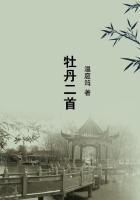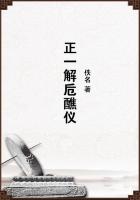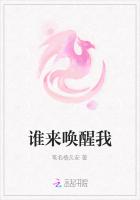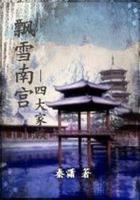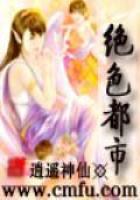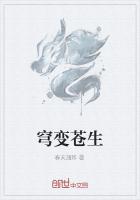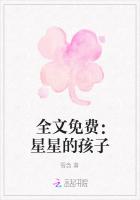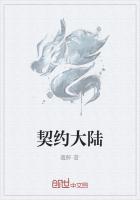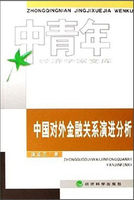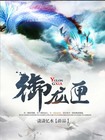Maria Silva was poor, and all the ways of poverty were clear to her. Poverty, to Ruth, was a word signifying a not-nice condition of existence. That was her total knowledge on the subject. She knew Martin was poor, and his condition she associated in her mind with the boyhood of Abraham Lincoln, of Mr. Butler, and of other men who had become successes. Also, while aware that poverty was anything but delectable, she had a comfortable middle-class feeling that poverty was salutary, that it was a sharp spur that urged on to success all men who were not degraded and hopeless drudges. So that her knowledge that Martin was so poor that he had pawned his watch and overcoat did not disturb her. She even considered it the hopeful side of the situation, believing that sooner or later it would arouse him and compel him to abandon his writing.
Ruth never read hunger in Martin's face, which had grown lean and had enlarged the slight hollows in the cheeks. In fact, she marked the change in his face with satisfaction. It seemed to refine him, to remove from him much of the dross of flesh and the too animal- like vigor that lured her while she detested it. Sometimes, when with her, she noted an unusual brightness in his eyes, and she admired it, for it made him appear more the poet and the scholar - the things he would have liked to be and which she would have liked him to be. But Maria Silva read a different tale in the hollow cheeks and the burning eyes, and she noted the changes in them from day to day, by them following the ebb and flow of his fortunes.
She saw him leave the house with his overcoat and return without it, though the day was chill and raw, and promptly she saw his cheeks fill out slightly and the fire of hunger leave his eyes. In the same way she had seen his wheel and watch go, and after each event she had seen his vigor bloom again.
Likewise she watched his toils, and knew the measure of the midnight oil he burned. Work! She knew that he outdid her, though his work was of a different order. And she was surprised to behold that the less food he had, the harder he worked. On occasion, in a casual sort of way, when she thought hunger pinched hardest, she would send him in a loaf of new baking, awkwardly covering the act with banter to the effect that it was better than he could bake.
And again, she would send one of her toddlers in to him with a great pitcher of hot soup, debating inwardly the while whether she was justified in taking it from the mouths of her own flesh and blood. Nor was Martin ungrateful, knowing as he did the lives of the poor, and that if ever in the world there was charity, this was it.
On a day when she had filled her brood with what was left in the house, Maria invested her last fifteen cents in a gallon of cheap wine. Martin, coming into her kitchen to fetch water, was invited to sit down and drink. He drank her very-good health, and in return she drank his. Then she drank to prosperity in his undertakings, and he drank to the hope that James Grant would show up and pay her for his washing. James Grant was a journeymen carpenter who did not always pay his bills and who owed Maria three dollars.
Both Maria and Martin drank the sour new wine on empty stomachs, and it went swiftly to their heads. Utterly differentiated creatures that they were, they were lonely in their misery, and though the misery was tacitly ignored, it was the bond that drew them together. Maria was amazed to learn that he had been in the Azores, where she had lived until she was eleven. She was doubly amazed that he had been in the Hawaiian Islands, whither she had migrated from the Azores with her people. But her amazement passed all bounds when he told her he had been on Maui, the particular island whereon she had attained womanhood and married. Kahului, where she had first met her husband, - he, Martin, had been there twice! Yes, she remembered the sugar steamers, and he had been on them - well, well, it was a small world. And Wailuku! That place, too! Did he know the head-luna of the plantation? Yes, and had had a couple of drinks with him.
And so they reminiscenced and drowned their hunger in the raw, sour wine. To Martin the future did not seem so dim. Success trembled just before him. He was on the verge of clasping it. Then he studied the deep-lined face of the toil-worn woman before him, remembered her soups and loaves of new baking, and felt spring up in him the warmest gratitude and philanthropy.
"Maria," he exclaimed suddenly. "What would you like to have?"
She looked at him, bepuzzled.
"What would you like to have now, right now, if you could get it?"
"Shoe alla da roun' for da childs - seven pairs da shoe."
"You shall have them," he announced, while she nodded her head gravely. "But I mean a big wish, something big that you want."
Her eyes sparkled good-naturedly. He was choosing to make fun with her, Maria, with whom few made fun these days.
"Think hard," he cautioned, just as she was opening her mouth to speak.
"Alla right," she answered. "I thinka da hard. I lika da house, dis house - all mine, no paya da rent, seven dollar da month."
"You shall have it," he granted, "and in a short time. Now wish the great wish. Make believe I am God, and I say to you anything you want you can have. Then you wish that thing, and I listen."
Maria considered solemnly for a space.
"You no 'fraid?" she asked warningly.
"No, no," he laughed, "I'm not afraid. Go ahead."
"Most verra big," she warned again.
"All right. Fire away."
"Well, den - " She drew a big breath like a child, as she voiced to the uttermost all she cared to demand of life. "I lika da have one milka ranch - good milka ranch. Plenty cow, plenty land, plenty grass. I lika da have near San Le-an; my sister liva dere.
I sella da milk in Oakland. I maka da plentee mon. Joe an' Nick no runna da cow. Dey go-a to school. Bimeby maka da good engineer, worka da railroad. Yes, I lika da milka ranch."
She paused and regarded Martin with twinkling eyes.
"You shall have it," he answered promptly.


